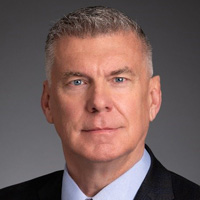How to Prepare to Work with a Financial Planner
Start off on the right foot by getting your financial ducks in a row before your first meeting. Here are some handy pointers for kick-starting a productive relationship.


Profit and prosper with the best of Kiplinger's advice on investing, taxes, retirement, personal finance and much more. Delivered daily. Enter your email in the box and click Sign Me Up.
You are now subscribed
Your newsletter sign-up was successful
Want to add more newsletters?

Delivered daily
Kiplinger Today
Profit and prosper with the best of Kiplinger's advice on investing, taxes, retirement, personal finance and much more delivered daily. Smart money moves start here.

Sent five days a week
Kiplinger A Step Ahead
Get practical help to make better financial decisions in your everyday life, from spending to savings on top deals.

Delivered daily
Kiplinger Closing Bell
Get today's biggest financial and investing headlines delivered to your inbox every day the U.S. stock market is open.

Sent twice a week
Kiplinger Adviser Intel
Financial pros across the country share best practices and fresh tactics to preserve and grow your wealth.

Delivered weekly
Kiplinger Tax Tips
Trim your federal and state tax bills with practical tax-planning and tax-cutting strategies.

Sent twice a week
Kiplinger Retirement Tips
Your twice-a-week guide to planning and enjoying a financially secure and richly rewarding retirement

Sent bimonthly.
Kiplinger Adviser Angle
Insights for advisers, wealth managers and other financial professionals.

Sent twice a week
Kiplinger Investing Weekly
Your twice-a-week roundup of promising stocks, funds, companies and industries you should consider, ones you should avoid, and why.

Sent weekly for six weeks
Kiplinger Invest for Retirement
Your step-by-step six-part series on how to invest for retirement, from devising a successful strategy to exactly which investments to choose.
The hardest part about planning for your financial future is figuring out where to start.
You already took the first step by performing your due diligence and selecting a financial planner. Now it is time to meet them to discuss your current situation and create a plan to help reach your goals. It’s natural to feel a bit unprepared, because there are a lot of moving parts, and discussing your finances with somebody new can be intimidating — especially if you’re not sure which questions to ask.
To make the most of working with a CERTIFIED FINANCIAL PLANNER™ professional, it is helpful to come prepared to discuss your financial situation. In your first meeting, it’s common to discuss the financial planning process, the goals you would like to accomplish and how your CFP® professional can help you work toward them. You should have some key information ready and be ready with some questions to ask your new adviser.
From just $107.88 $24.99 for Kiplinger Personal Finance
Become a smarter, better informed investor. Subscribe from just $107.88 $24.99, plus get up to 4 Special Issues

Sign up for Kiplinger’s Free Newsletters
Profit and prosper with the best of expert advice on investing, taxes, retirement, personal finance and more - straight to your e-mail.
Profit and prosper with the best of expert advice - straight to your e-mail.
The steps below will help you set yourself up for a successful relationship with your planner. They help your financial planner do their job of bringing a holistic, personalized approach to assessing and building your financial future in a way that pulls all the pieces of your financial life together.
Understand what to expect from your adviser
Your CFP® professional will usually start by walking you through the financial planning process. Then they will conduct a thorough review to assess your current financial situation and work with you to develop or refine your goals.
In subsequent meetings, your financial planner will use that context to create and discuss a custom plan to help you reach your goals. They will also guide you through the steps and help you chart your progress over time.
Know what you don’t know
Many times, clients spend their first meeting with their planner overexplaining or justifying their prior financial decisions. Know that your CFP® professional is not there to judge you, only to help you.
To expedite your first conversation and put your mind at ease, you may want to learn more about some of these issues beforehand:
- Understanding insurance and what your policies protect (and don’t)
- Establishing and funding an emergency account
- Knowing the difference between good and bad debt
- Considering your estate planning needs
Gather key information
To plan for your financial future, you must share an accurate picture of your financial present.
You can help your CFP® professional understand your current situation by bringing the following documents and information to your meeting, in addition to any paperwork or questionnaires that they may have sent you ahead of time:
- Savings and investment statements.
- Income and expenses.
- Mortgage and other debt statements.
- Insurance and estate planning documents.
- Employee benefits information.
- Social Security benefits and pension (if you are near or in retirement).
It is not necessary to provide all those details immediately, but having a ballpark estimate of your income, investments and debts will help gauge the scope of the work needed.
Pinpoint your goals
Start thinking about your short-term and long-term goals and have a clear expectation of them going into the meeting. Be prepared to answer the following questions:
- Do you hope to retire soon?
- Are you saving for a life milestone, such as buying a house or financing a wedding?
- Will you be helping fund your child’s education?
- Do you have an emergency fund or a savings goal?
Knowing what you want from your finances now and what you hope for in the future will help you evaluate the changes you’ll have to make to achieve those goals.
Prepare a list of questions prior to the meeting
To make the most of your meeting time, ask for an agenda or provide your own 24 hours before the meeting. You can ask these questions at your first meeting or send them in advance, so the adviser is ready to address them when you meet.
Also make sure to check the adviser’s website for any information that may be useful before attending the meeting. They may even have a prepared FAQ, saving you some time in your first meeting.
Know what your CFP® professional is going to discuss
At your first meeting, you should expect your CFP® professional to explain several things, including:
- The importance of understanding not only your assets, income and liabilities — but also your goals and objectives for your plan.
- How you will collaborate to create a planning experience customized to you and your family.
- An example of how progress toward your goals will be measured.
- Their risk management and investment philosophy.
When the meeting concludes, your financial planner should provide you with an outline of the next steps. A formal proposal should follow.
Talking with a CFP® professional can help you find a path to achieving your financial goal — no matter where you are in life. Therefore, you should walk out of your first meeting feeling a connection with your CFP® professional. You should also have confidence that they understand and are aligned with your values and goals.
The result should be a long-term relationship with your planner built on trust, honesty and understanding. That way, your CFP® professional can help provide you with confidence today and set the foundation for a more financially secure tomorrow.
Profit and prosper with the best of Kiplinger's advice on investing, taxes, retirement, personal finance and much more. Delivered daily. Enter your email in the box and click Sign Me Up.

Kevin R. Keller, CAE, is CEO of the Certified Financial Planner Board of Standards Inc. CFP Board sets standards for financial planning and administers the prestigious CFP® certification – one of the most respected certifications in financial services and one of the few accredited financial services designations. He leads CFP Board to benefit the public by granting CFP® certification and upholding it as the standard of excellence for competent and ethical personal financial planning.